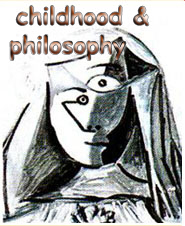desenvolver o raciocínio e a investigação de crianças, a análise de conceitos e as habilidades de criação de significado por meio da comunidade de investigação
DOI:
https://doi.org/10.12957/childphilo.2018.28144Palavras-chave:
critical thinking, assessment, philosophical dialogue, community of inquiry, Philosophy for ChildrenResumo
This paper presents the results of a research done to investigate the effectiveness of Philosophy for Children (P4C), a pedagogy employing philosophical dialogue in a community of inquiry, in a Philippine primary school. Quantitative analysis of critical thinking skills identified by Sharp and Splitter (1995) as (1) reasoning; (2) concept analysis; and (3) meaning-making revealed that there was a considerable increase in the frequency of the children’s use of such critical thinking skills over the course of fifteen (15) sessions of dialogical inquiry. Moreover, qualitative analysis of excerpts from the dialogue transcripts accounted for the refinement of the children’s use of the critical thinking skills. This pioneering work thus calls for further research that will implement P4C in other grade levels and to explore other indicators of development in children’s thinking. Further, it recommends that primary schools adopt P4C in Philippine basic education curriculum and that teacher education institutions provide teacher training and include P4C for pre-service training.




